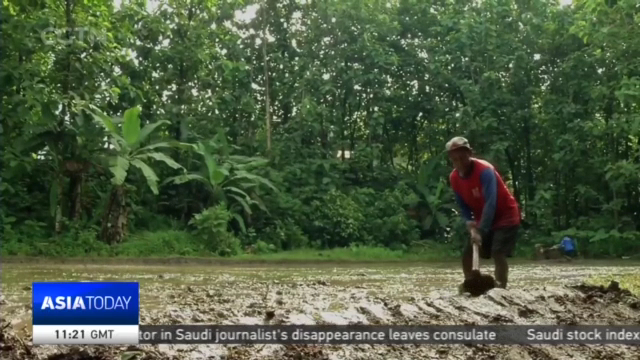
20:15, 16-Oct-2018
Seeking Rice Self-Sufficiency: Indonesia working through challenges to stop rice imports
Updated
19:41, 19-Oct-2018
03:15

Indonesia's agriculture sector is considered one of the most important contributors to the country's economy, employing more than 50 million individuals.
The country is the world's third largest rice grower but its government still relies heavily on imports. In 2017, Indonesia imported nearly 1.5 million tons of rice from neighboring countries like Thailand and Vietnam.
Although Indonesian President Joko Widodo has urged farmers to increase productivity of rice farming, many challenges still lie ahead such as weak production techniques and large per capita rice consumption.
DWI ANDREAS AGRICULTURE EXPERT "We only have around 7.7 million hectares for growing rice and that land is decreasing yearly. Government regulations also pose a problem. They want to increase productivity, but it's not usually in the farmers' interest, which leads many to leave their jobs and land."
Dwi believes food security is an issue concerning many countries around the world, especially Indonesia. He says it's crucial for the country to focus its resources on its agricultural sector.
However, factors like inconsistent weather climate is out of the government's control but plays a big role in Indonesia's need to import rice.
SILKINA AHLUWALIA JAKARTA "Severe weather changes and decreasing soil fertility makes it difficult for local farmers to grow high quality rice. The Ministry of Agriculture is now encouraging experts to use technology in organic rice farming to improve sustainability of rice production." Azwar runs a small shop in West Java that focuses on the farm to table approach. All of the products sold directly support local farmers in the area and he says the impact of rice imports are affecting those farmers' livelihood.
AZWAR HADI NASUTION FARMER "Imported rice forces local farmers to sell at a lower price. Pricing remains an issue because it becomes very competitive and unclear. The philosophy of farmers is to keep planting. When there's no profit, they get stuck in a difficult situation of selling their land or start owing lots of money."
Climate change is a significant factor to food crop production in Indonesia. The Ministry of Agriculture is continuously working to support domestic agriculture to provide farmers with the proper tools to sustain their livelihood. Silkina Ahluwalia, CGTN, Jakarta.

SITEMAP
Copyright © 2018 CGTN. Beijing ICP prepared NO.16065310-3
Copyright © 2018 CGTN. Beijing ICP prepared NO.16065310-3